Advertisement
Why sticking with the plan works best
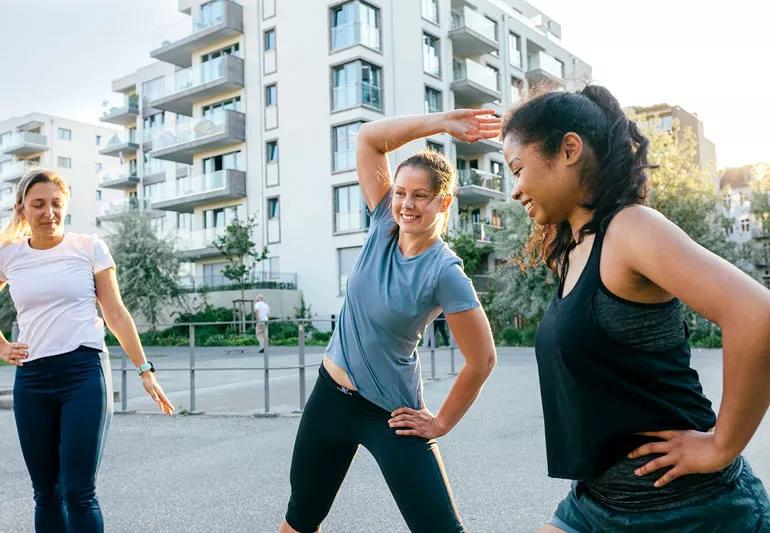
You may start exercising for a lot of different reasons: You need to lose weight for your health. You plan to run a 5K or marathon. You want to enhance your fitness for cross country skiing or to impress at the beach.
Advertisement
Cleveland Clinic is a non-profit academic medical center. Advertising on our site helps support our mission. We do not endorse non-Cleveland Clinic products or services. Policy
Whatever your motivation, expect to gain a few pounds at first. But don’t panic. The pounds won’t hang around if you keep at it.
“The key point here is that weight and muscle mass changes will occur,” says physical therapist Gary Calabrese, DPT. “Initially, they aren’t all what some people may perceive as headed in a positive direction ― because you may gain a little weight at first.”
When you start an exercise program, your body naturally goes through several changes in the first couple months.
A new exercise regimen puts stress on your muscle fibers. This causes small micro tears, also known as micro trauma, and some inflammation. Those two conditions in your muscle fibers are the reason you may gain some weight.
Your body responds to the micro tears and inflammation in two ways that cause temporary water weight gain.
The first is a healing response.
“That stress and micro-tearing damage to the muscle fibers induces water retention in the body,” Dr. Calabrese explains. “There may be a small amount of inflammation around the micro tear, and your body retains fluid there to try to heal it.” These are short lived changes in the muscle.
You will also most likely experience delayed onset muscle soreness in the 24 to 36 hours after exercising. That is your body’s natural response to those micro muscle tears and the breakdown in muscle tissue.
So, don’t overdo. Eat properly and give your muscles the proper amount of rest so they can heal and rebuild, Dr. Calabrese says.
The way your body provides energy to the muscles also can add weight at first.
Glycogen or sugar that your muscle cells convert to glucose is the energy source for your muscles. When you exercise regularly, your body stores more glycogen to fuel that exercise.
Stored in water, glycogen has to bind with water as part of the process to fuel the muscle. That water adds a small amount of weight, too.
“As your muscles become more accustomed to the exercise and more efficient, however, they begin to need less glycogen to maintain the same level of energy output,” Dr. Calabrese says. “Thus, your water retention becomes less, so your weight will start to go down.”
You will start to lose that initial water weight gain (of roughly one to three pounds) a few weeks or a month after starting an exercise program, he says.
There is another source of weight gain that people often misunderstand, Dr. Calabrese says.
You will gain weight from lean muscle mass that you add by building your muscles with exercise or weightlifting. But this won’t happen right away.
It will take you at least a month or two to add any lean muscle mass that would show up in your weight. By that point, you will probably be experiencing a good weight-loss trend because of the exercise.
Advertisement
“Again, people may not consider the early changes to their bodies as positive,” Dr. Calabrese says. “But there will be good changes later, so you have to stick with your exercise program.”
Before you add any exercise to your routine, talk to your doctor to make sure your body is healthy enough for exercise.
Next, sit down with a medically based physiologist, physical therapist or athletic trainer who is well-versed in the effects of exercise. They can help you map out your exercise program, learn about the proper nutrition and rest you will need, and discuss the changes your body will experience as a result of your training.
Then, get on with your program.
And look forward to the final step — when you take that new body of yours out to enjoy the ski slopes or a sunny, sandy beach.
Advertisement
Learn more about our editorial process.
Advertisement

Walking is a great goal, but how many steps are best for you depends on factors like your fitness level and age

A walking pad is a simplified treadmill that can fit under your desk and help you get more movement in your day
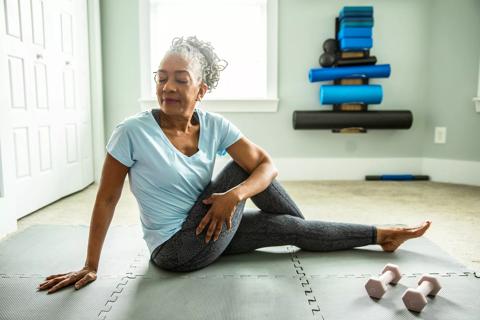
First, reflect on your specific workout goals, and then pick and choose your fitness equipment
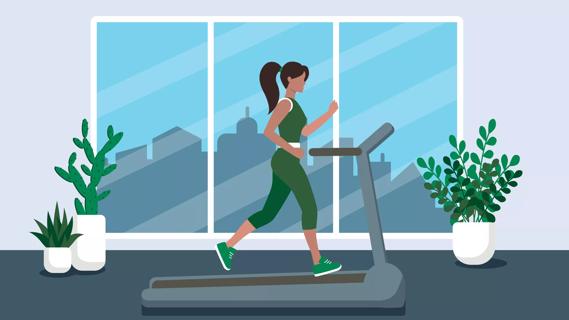
Easing up on your routine can help your body recover and get stronger
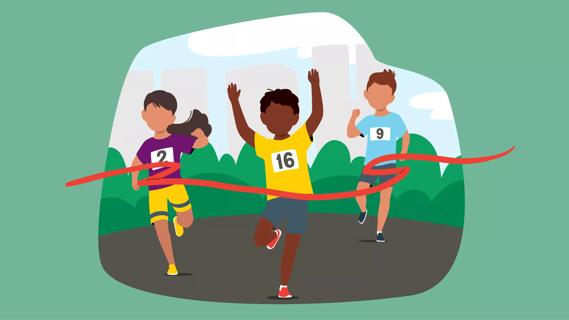
Let your little one’s enthusiasm and motivation fuel their interest in running, but don’t pile on miles too early
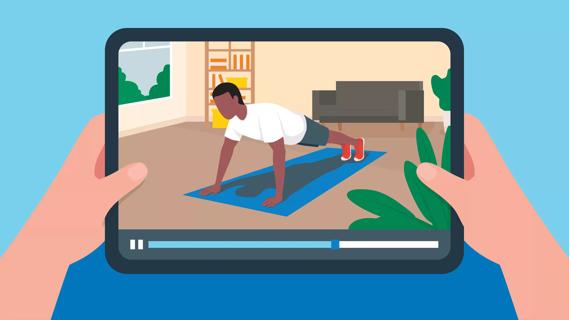
You don’t need to spend big money on better health

This simple phrase encourages you to enjoy your workouts, not dread them

Chair exercises can help people age 65+ retain independence

Your metabolism may torch 1,300 to 2,000 calories daily with no activity

A gentle touch in all the right places may help drain your sinuses